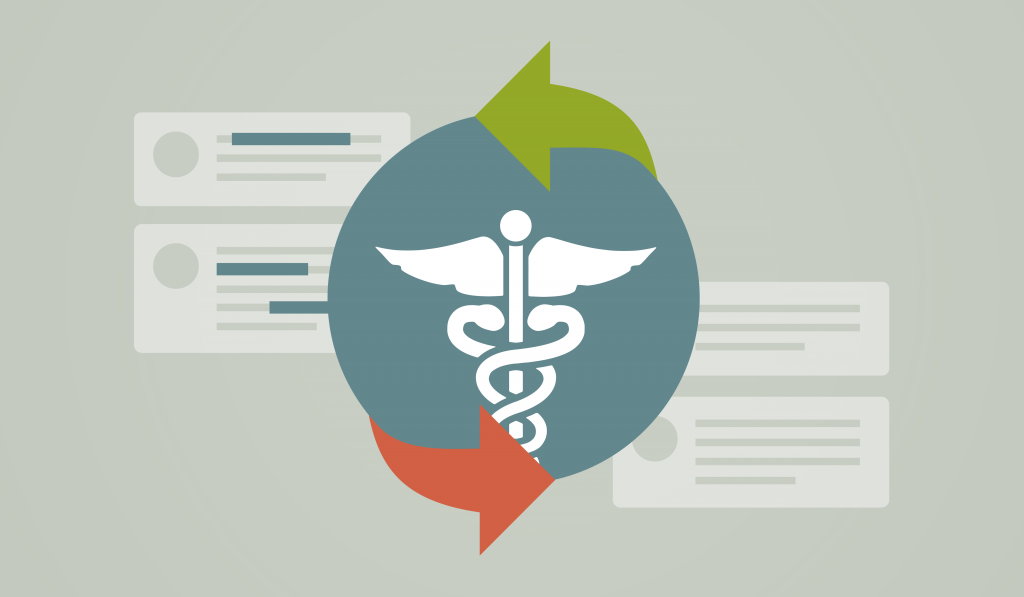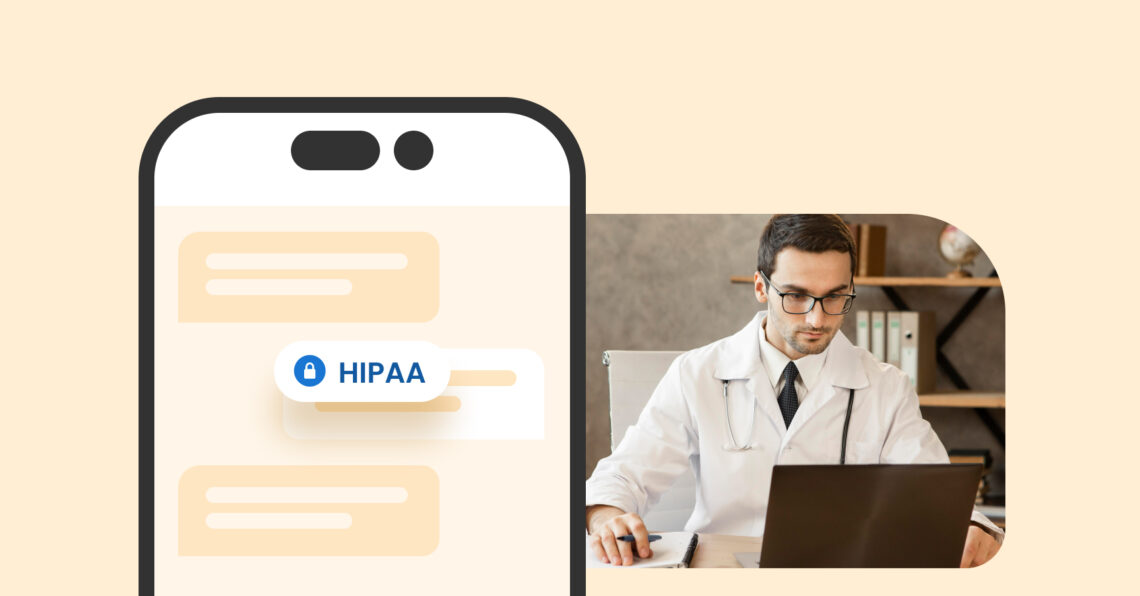When people ask if Birdeye is HIPAA (Health Insurance Portability and Accountability Act) compliant, I wish I could give a simple “yes” or “no” answer. But the truth is, HIPAA compliance is never that straightforward. My response always begins with a confident “yes,” but quickly evolves into a more nuanced explanation. Why? Because HIPAA compliance isn’t just about checking a box or following a basic HIPAA compliance checklist; it requires a comprehensive program and a collective effort from all parties involved.
In today’s healthcare landscape, where technology plays a critical role in consolidating patient information and facilitating seamless data transfer between providers, this complexity is more apparent than ever. With great data comes great responsibility, and ensuring HIPAA compliance is a shared obligation that requires vigilance, expertise, and a commitment to protecting sensitive patient information.

The healthcare ecosystem comprises a diverse cast of players. At the forefront are the primary caregivers—doctors, hospitals, and healthcare systems—who deliver vital services to patients. Behind the scenes, Electronic Health Record Management (EHRM) systems play a crucial role in modernizing care and housing sensitive patient information.
And then, there are the peripheral players, like Birdeye, whose contributions may be less visible but still vital to the healthcare system. While our role may not rely heavily on Protected Health Information (PHI), we recognize that any entity handling or accessing PHI bears the responsibility of upholding HIPAA standards. In the grand scheme of healthcare, it’s not about where you fit in – it’s about doing your part to safeguard patient data to ensure compliance.
The basic rules of HIPAA
HIPAA is a multifaceted law that demands attention to detail from healthcare providers. At its core, HIPAA is built around three fundamental pillars or objectives: “security,” “privacy,” and “notice.” While these principles seem straightforward, the complexity lies in the finer details. To ensure compliance with HIPAA, healthcare providers must delve deeper, asking themselves critical questions such as:
- Do we have a robust Privacy Policy in place that safeguards patients' PHI, ensuring it remains confidential and is only used for the specific and limited purposes of providing the intended services? - Have we implemented comprehensive data security policies and practices that fortify the technological, administrative, and physical protection of PHI, shielding it from unauthorized access or breaches?
By scrutinizing these details, healthcare providers can navigate the complexities of HIPAA and uphold the highest standards of patient data protection.
HIPAA compliance checklist: Essential steps for healthcare providers
A well-structured HIPAA compliance checklist should guide companies in safeguarding PHI. Here are some key steps to include:
- Process and store data in well-established systems with the best possible security.
- Ensure that the data is encrypted both in transit and at rest so that PHI remains indecipherable to unauthorized parties.
- Train personnel who have access to, or might have access to PHI, empowering them to handle sensitive information with care and vigilance.
- Draft and implement a stringent Privacy Policy, guaranteeing that patient data is utilized solely for its intended purpose while also providing patients with unfettered access to their information, including the ability to edit or delete it, and strictly prohibiting its use for marketing or promotional purposes.
- Establish a solid security program, including policies, procedures, and training, specifically designed to protect all data but with a focus on shielding highly sensitive data like PHI.
- Ensure that access to PHI is strictly limited to authorized personnel who undergo rigorous training to handle sensitive information with the utmost care.
- In the event of a breach, ensure a swift and effective response through well-established procedures to:
- Notify data subjects of the breach
- Communicate the breach to the subjects in a timely manner
- Rectify the breach thoroughly and as quickly as possible
- Have ironclad agreements, such as Business Associate Agreements and Data Processing Agreements, to enure that all parties involved in processing PHI adhere to the highest standards of privacy and security.
By following this HIPAA compliance checklist, companies can ensure they’re on the right path toward safeguarding patient data.
A two-way street
Achieving HIPAA compliance is a collective responsibility, demanding a cohesive effort from all parties involved. It’s a shared obligation that requires each entity to not only fulfill their own duties but also hold their partners and peers accountable.
HIPAA compliance is a continuous journey, not a one-time checkbox exercise. It necessitates ongoing collaboration, constant learning, and unwavering vigilance.
Birdeye’s commitment to HIPAA compliance
Birdeye is committed to providing the highest level of privacy and security for all data that it handles. With many clients in the healthcare industry, Birdeye is particularly attuned to HIPAA specifics. Although our online reputation management services don’t require PHI, we recognize that end-users may voluntarily share it with us. As such, we handle all data as if it were PHI, mirroring the standards of hospitals, dental clinics, and doctor’s offices. Our smaller size in terms of the intended use of and actual access to PHI doesn’t diminish our focus on achieving maximum HIPAA compliance within our control.
To ensure this, Birdeye does the following:
- Maintain a comprehensive Privacy Policy
- Enforce over 20 robust Data Security Policies
- Conduct annual training for the team
- Collaboration between Chief Data Security Officer and Chief Privacy Officer to guarantee compliance
- Work with the leader in Cloud Hosting using the highest level of data security
- Implement robust technological, physical, and administrative controls:
- Using only the best, most security-focused data centers
- A comprehensive Privacy Policy that gives patients access to and control over their PHI
- A comprehensive data security program unmatched in the online reputation management industry (treating all data as if it’s extremely sensitive data)
- Encrypt data in transit and in storage
- Extreme focus on protecting all data
- Train personnel, and keep the company aware of the latest developments in privacy and data security laws generally and HIPAA, specifically
- Execute Business Associate Agreements (BAAs) for all clients in the healthcare industry regardless of size or focus
- Commitment to prompt notification and corrective action in the event of a PHI breach
- A constant focus on HIPAA and all data security and privacy matters through its legal, technological, and administrative “Data Team” to keep all of its policies and practices up-to-date, with the end user’s privacy as the ultimate goal
By taking these steps, we demonstrate our dedication to HIPAA compliance and protecting sensitive patient information.
HIPAA compliance isn’t just flipping a switch or checking a box. It’s an ongoing journey with a mutually beneficial destination. At Birdeye, we take that journey in step with our clients. We’re committed to upholding the highest standards of privacy and security, and we encourage all parties in the healthcare chain – and in all industries – to do the same.

Originally published









